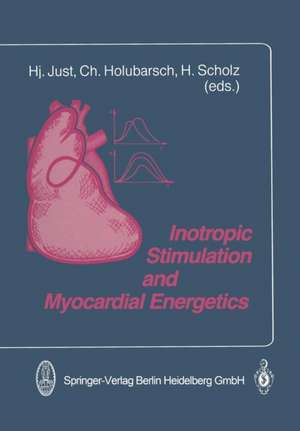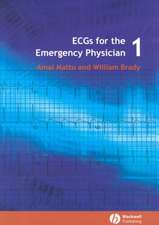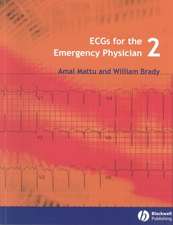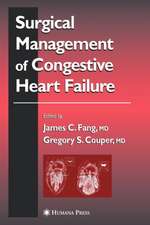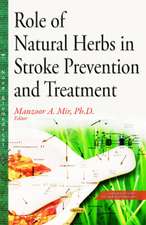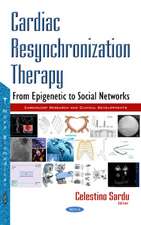Inotropic Stimulation and Myocardial Energetics
Autor H. Just, C. Holubarsch, H. Scholzen Limba Engleză Paperback – 28 dec 2012
Preț: 370.21 lei
Preț vechi: 389.70 lei
-5% Nou
Puncte Express: 555
Preț estimativ în valută:
70.85€ • 76.93$ • 59.51£
70.85€ • 76.93$ • 59.51£
Carte tipărită la comandă
Livrare economică 23 aprilie-07 mai
Preluare comenzi: 021 569.72.76
Specificații
ISBN-13: 9783662079102
ISBN-10: 3662079100
Pagini: 284
Ilustrații: IX, 273 p. 29 illus.
Greutate: 0.45 kg
Ediția:Softcover reprint of the original 1st ed. 1989
Editura: Steinkopff
Colecția Steinkopff
Locul publicării:Heidelberg, Germany
ISBN-10: 3662079100
Pagini: 284
Ilustrații: IX, 273 p. 29 illus.
Greutate: 0.45 kg
Ediția:Softcover reprint of the original 1st ed. 1989
Editura: Steinkopff
Colecția Steinkopff
Locul publicării:Heidelberg, Germany
Public țintă
Professional/practitionerCuprins
Introduction: Mechanisms of positive inotropic effects.- Adrenoceptors in myocardial regulation: concomitant contribution from both Alpha- and betaadrenoceptor stimulation to the inotropic response.- Studies on the cellular mechanisms of action of positive and negative inotropic agents.- On the mechanism of positive inotropic effects of alpha-adrenoceptor agonists.- Cytosolic sodium concentration regulates contractility of cardiac muscle.- Energy requirements of contraction and relaxation: implications for inotropic stimulation of the failing heart.- Genetic and non-genetic control of myocardial calcium.- Regulation of force and intracellular calcium transients by cyclic AMP generated by forskolin, MDL 17,043 and isoprenaline, and its modulation by muscarinic receptor agents: a novel mechanism for accentuated antagonism.- Studies on the mechanism of action of the bipyridine milrinone on the heart.- Ca-Agonists: a new class of inotropic drugs.- Myofibrillar Ca++ activation and heart failure — Ca++ sensitization by the cardiotonic agent APP 201–533.- Positive inotropic stimulation in the normal and insufficient human myocardium.- Do human cardiac beta-2 adrenoceptors play a (patho)physiological role in regulation of heart rate and/or contractility?.- Influence of isoproterenol on myocardial energetics. Experimental and clinical investigations.- Effects of long-term xamoterol therapy on the left ventricular mechanical efficiency in patients with ischemic heart disease.- Modulation of the autonomic control of the failing heart.- Dopexamine in congestive heart failure: how do the pharmacological activities translate into the clinical situation?.- The use of levodopa, an oral dopamine precursor, in congestive heart failure.- Clinical relevance of long-term therapy withlevodopa and orally active dopamine analogues in patients with chronic congestive heart failure.- Cardiovascular effects of forskolin and phosphodiesterase-III inhibitors.- Phosphodiesterase inhibitors: alterations in systemic and coronary hemodynamics.- Influence of the calcium-sensitizer UDCG-115 on hemodynamics and myocardial energetics in patients with idiopathic dilated cardiomyopathy. Comparison with nitroprusside.- Myocardial energetics: experimental and clinical studies to address its determinants and aerobic limit.- Use of a conductance catheter to detect increased left ventricular inotropic state by end-systolic pressure-volume analysis.- Separation between vasodilation and positive inotropism by assessment of myocardial energetics in patients with dilated cardiomyopathy.
